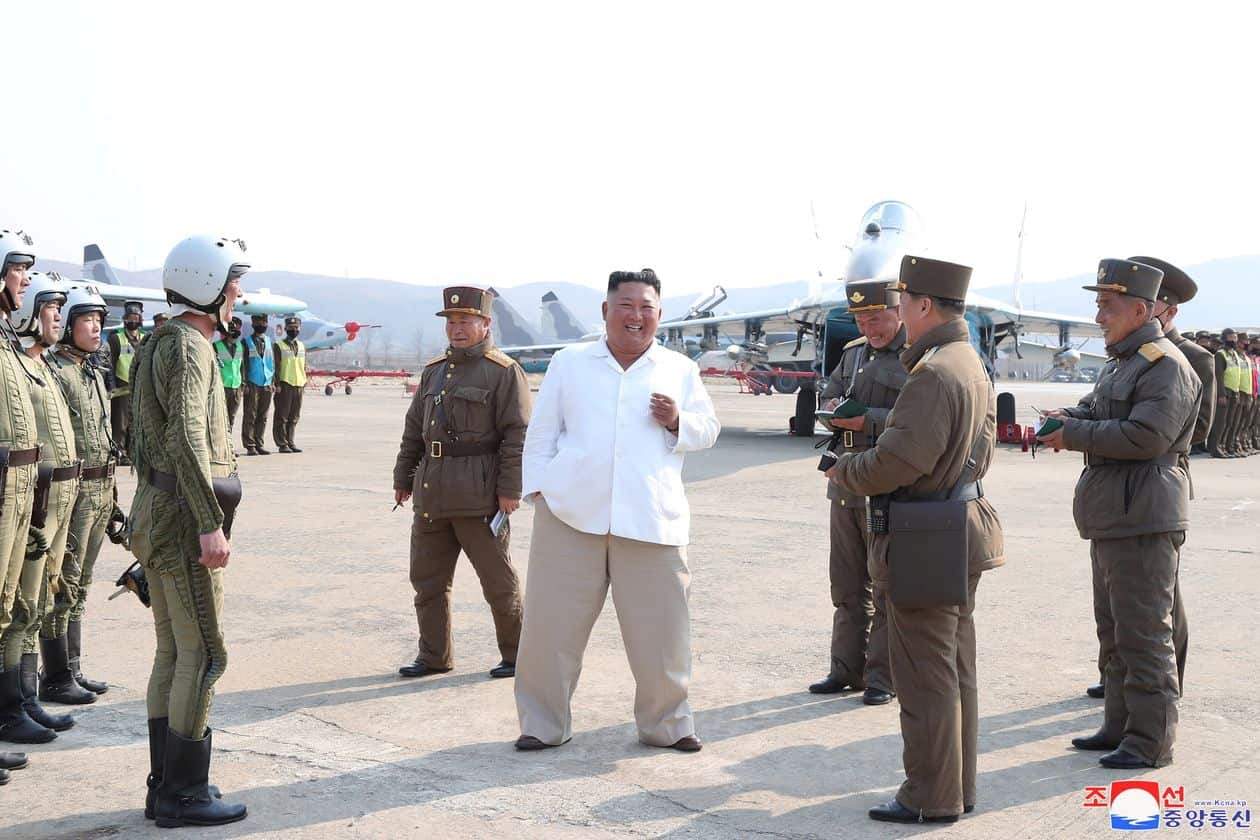North Korea Test-Fires Short-Range Missiles

North Korea test-fired short-range cruise missiles off its east coast on Tuesday morning, South Korea’s military said, a day before the country’s holiday commemorating founder Kim Il Sung and a South Korean national election.
The missiles were launched around 7 a.m. near the North’s coastal city of Munchon and splashed into the waters between the Korea Peninsula and Japan, according to the South’s military. The projectiles flew more than 93 miles and for roughly 40 minutes, it added.
The Tuesday launch was Pyongyang’s fifth weapons test of the year. Its previous launch was March 29.
The U.S. and North Korea haven’t held formal denuclearization talks since October. A diplomatic rekindling any time soon appears unlikely, security analysts say, as both countries deal with the coronavirus pandemic. Pyongyang says it has no confirmed cases, a claim viewed with skepticism by U.S. officials and health experts familiar with North Korea.
The North’s weapons launch occurred even though mass celebrations commemorating Kim Il Sung’s birth on Wednesday haven’t been scheduled because of the new coronavirus, according to South Korea’s Unification Ministry. On Sunday, North Korea’s senior officials gathered for a parliamentary meeting and vowed to intensify the “anti-epidemic campaign” against Covid-19, the disease caused by the virus, state media reported.
Health experts and aid groups have said North Korea is extremely vulnerable to infectious diseases because of an ill-equipped health-care system. The country ranks among the world’s lowest in terms of preparedness for a disease outbreak, according to the Global Health Security Index published by Johns Hopkins University. Hospitals and households outside Pyongyang often lack electricity and running water, North Korea watchers say.
Last month, President Trump sent a letter to North Korean leader Kim Jong Un, offering U.S. assistance to combat the coronavirus in the isolated regime, Pyongyang’s state media reported.
A week after receiving Mr. Trump’s letter, North Korea’s Foreign Ministry said it had lost interest in dialogue with the U.S. and criticized Secretary of State Mike Pompeo for urging other Group of Seven nations to continue diplomatic and economic pressure against the regime.
As the U.S. grapples with the pandemic, Mr. Trump has little capacity for North Korean denuclearization progress, even as Pyongyang returns to short-range weapons testing, policy experts say.
“I do not believe the U.S. will engage with North Korea on issues other than Covid-19 under the current administration and the ongoing health crisis,” said Kevin Shepard, a defense-policy specialist and former deputy director for U.S. Forces Korea, which oversees American military personnel in South Korea.
The North kept a low profile for the first three months of the year. On Jan. 1, Mr. Kim unveiled a policy shift regarding the U.S., claiming he no longer felt bound to a moratorium on intercontinental ballistic missile launches or nuclear tests. He also vowed to reveal a new strategic weapon soon.
Tuesday’s short-range launch featured guided cruise missiles that could be used for anti-ship defenses, military experts say. On the same day, Pyongyang flew several Sukhoi jet fighters and fired air-to-ground missiles into waters between South Korea and Japan, Seoul’s military said.
North Korea’s state media didn’t have immediate comment on Tuesday’s military activity.
Last month, Pyongyang conducted four separate launches and fired nine short-range projectiles thought by Seoul’s military to be ballistic missiles. Such tests violate United Nations sanctions on the Kim regime.
Photo: North Korean leader Kim Jong Un visited a pursuit-assault plane group in a photo released Sunday. - KCNA/REUTERS




